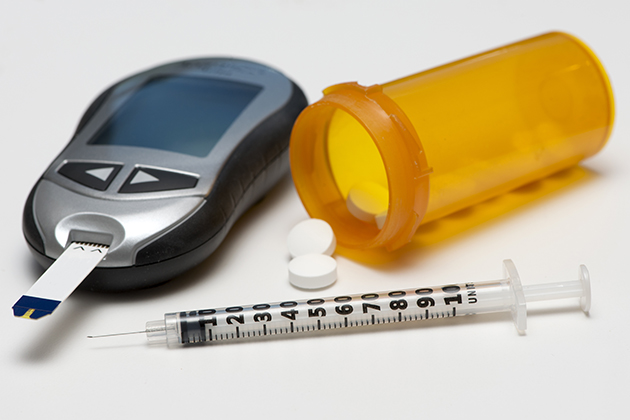
People with the most common form of diabetes can take the new drug Alogliptin without concern for an increased risk of heart failure or cardiovascular disease, according to research by a UConn cardiologist just published in the British medical journal, The Lancet.
Dr. William White, professor of medicine and chief of the Calhoun Cardiology Center Division of Hypertension and Clinical Pharmacology at UConn Health, analyzed data from a global clinical trial called EXAMINE. Regulatory agencies require a comprehensive evaluation of the cardiovascular safety profile of new diabetic therapies.
“This new analysis shows that Alogliptin was safe in patients with Type 2 diabetes who we considered at high cardiovascular risk because they had had an acute coronary syndrome before entering the trial,” says White.
Even in patients who had a history of heart failure – 28 percent of participants – there was no increase in hospitalization.

The information is significant because of the prevalence of heart disease morbidity and mortality in patients with Type 2 diabetes. According to the World Health Organization, heart disease is responsible for between 50 percent and 80 percent of deaths among diabetics.
Also, the findings contradict a previous clinical trial of another diabetes medication in the same drug class that showed a modest increase in heart failure risk, leading to a closer scrutiny of Alogliptin – an orally administered anti-diabetic drug in the DPP-4 inhibitor class – in the medical community.
EXAMINE is an acronym for “Examination of Cardiovascular Outcomes: Alogliptin vs. Standard of Care in Patients with Type 2 Diabetes Mellitus and Acute Coronary Syndrome.” The study included nearly 5,400 diabetics in 49 countries, all of whom were within 90 days of hospitalization for either a heart attack or chest pain related to coronary heart disease. The trial was funded by Japanese pharmaceutical company Takeda, which makes Alogliptin.
Follow UConn Health on Facebook, Twitter, YouTube, and SoundCloud.


